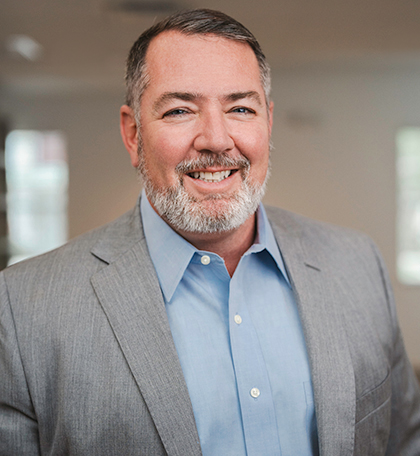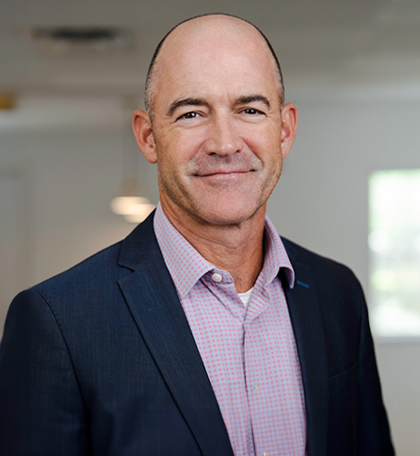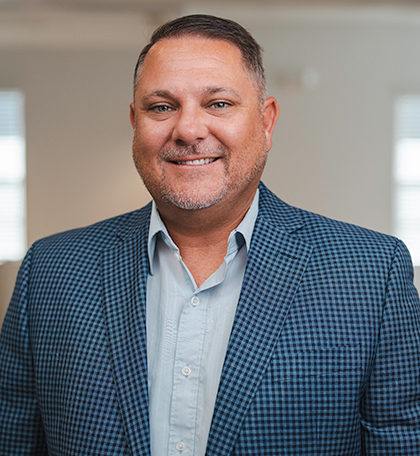TRANSCRIPT:
Welcome back to Financial Foundations, brought to you by Base Wealth Management, where we are the foundation to your financial plan. I’m your host, Dustin Taylor. I’m your co-host, Alex Wolfe, certified financial planner. And today we are talking about debt. Is it good or is it bad? Alex, for the first question, how could I determine whether my debt is healthy or problematic for my financial situation? Yeah, so debt can be a little bit of a controversial topic. We’ve all heard the people on the internet or shows that say you should never carry debt. Dave Ramsey, he is one of those. And, you know, that’s not necessarily true or accurate. There are some reasons why you might want to take on debt. And we’re going to talk a little bit about that and some things to consider on whether you should or should not have various types of debt and if it’s good or bad. The first thing I want to talk about is the level of debt. You don’t want to have so much debt that you.
You have nothing in savings, nothing in retirement accounts. You’re underwater on your car, meaning it’s not worth as much as you owe. Those are some problematic things. But if you’ve got healthy debt, like a mortgage that’s at a low interest rate or a car loan at a low interest rate and you made a good down payment on it, those are good things. And I’ll tell you why. What’s the differentiating factor to determine good from bad debt? One thing to really consider is the interest rate. If you’ve got a high interest rate credit card and you’ve just been putting all your expenses on this credit card and you’re making the minimum payment and the interest rate’s 20 plus percent, that’s not necessarily a good thing. A good form of debt would be if you have a low interest rate on a loan, whether it be a business loan, a mortgage, car loan, and you’re making payments and you’ve got equity in that business or house, car, whatever it might be, and you’re not, you know, making minimum payments, there’s a reason why you might want to do payments and either invest the rest or save possibly more because that debt as a low interest rate, you might be able to make more off of not putting a bunch of money down or paying it off.
If you do have a lot of debt, what are some of the different strategies that you could use to repay that debt and what’s an example of each one, like a fit for each one? Yeah, so the most common way to think about this is when you look at all of your debt, you want to look at the interest that you’re paying on that and pay off the higher interest rate debt first. So again, the high interest credit card, pay that off first and then pay off your car, you know, your car loan is probably you know, under 7% depending on what interest rate and when you financed it. That’s going to be a better interest rate than a 20 plus percent interest rate on a credit card. So focus on the high interest debt first, or if you’ve got a bunch, you know, if you’re someone who’s not practiced the best spending habits, and you’ve got multiple credit cards, you might want to look at debt consolidation and find where you can move that all to like a company that will help you, I don’t know if it’s refinanced, but they’ll help you consolidate that into a lower interest rate and pay off the higher interest rate cards with you. That’s something to consider too. I’ve found that there’s not always a one size fits all. So how much does mentality play in which method you should use, whether it’s the snowball method or the avalanche method?
I mean, paying off a small debt may be an emotional win for someone. And keep them going rather than trying to chip away at a larger one. So that’s kind of the snowball effect, finding that maybe it’s a lower balance but a high interest rate and paying that and you’re going to feel good about your spending habits and you just continue to chip away and create those good habits and spending practices to pay off those things first and maybe it’s not the biggest debt obligation but determining the right one to pay off first and typically it’s the higher interest rate one but it might not be if it’s just the smallest one. Just paying that off and creating that good healthy habit will change your mindset. So what about the opportunity costs in paying off debt? How can you assess whether it makes more sense to pay off debt or to invest in the market? Yeah, so I kind of really briefly mentioned this a little bit ago is, is there an opportunity to continue making that small payment on a low interest rate and investing potentially more in like the stock market.
So if your interest rate on your car loan is 3% and your payment is $500. So make your $500 payment every month until it’s paid off, and if you’ve got extra income from your, you know, job, extra side work, whatever it is, instead of paying more on the car loan, if you’re able to get seven or eight percent conservatively-ish in the stock market, instead of paying on that car loan, invest that extra money into the stock market and grow that instead of just paying off that low interest rate debt. So the opportunity cost there is roughly 5%. If you have a 3% loan and you’re able to get 8% annually in the stock market, the difference is 5%. What would be your opinion in the current market for mortgages, because the rates are quite high? What do you think there? Yeah, with the rates being higher, we’re back around 7% on a 30-year fixed mortgage.
That’s something that I’ve made this comment to clients and other advisors in the office is if you find that house, and we’re seeing at least in Florida the housing market soften, it’s more of a buyer’s market right now than a seller’s market. There’s more supply, they’re sitting a little bit longer, so as a buyer you might be able to negotiate the price more now than you can in the future if rates come down. But if rates come down you might see a flood of buyers enter the market and that might flip to a seller’s market. So even though rates are higher, you know around 7%, you might be able to get the house cheaper even though your mortgage might not be cheaper because of the 7% interest rate, but you can always refinance that. So the kind of term or phrase I’ve been using is marry the house and date the mortgage because the mortgage can be adjusted. You’re not going to be locked in necessarily for 30 years if rates come down in the future. You want to make sure you’re buying if you can afford it.
If you can afford that house, buy it because it may not last on the market as rates start to come down or in the future. Some people are unable to pay off their debt by retirement. What are the implications of that? Yeah. So I wouldn’t necessarily be too concerned with that unless it’s like an overall theme of your financial picture where you’re constantly carrying debt and not necessarily good debt, but I don’t think that you have to have your mortgage or your car paid off before you can retire. I don’t agree with that, especially if it’s a low, comfortable interest rate and you’re able to make that payment without an issue while in retirement, just like you could, if you were working, don’t necessarily rush to pay it off. Again, there could be an opportunity cost where if you start making double payments, but we’re in a good stock market bull run, don’t rush to pay it off if you can make more in the stock market, unless you’re trying to create a healthy habit for someone who’s not had the best relationship with money or debt in the past.
Debt can affect your credit score and how you repay that debt as well. How does your credit score factor into your financial plan or your overall financial picture when you’re considering a financial plan? Yeah, so we’ve run into this problem with clients who were so used to paying cash or paying everything off and never taking a loan or getting debt, they have no credit history. So if they in the future want to apply for a loan or a credit card or something like that, they can have a big issue getting approved for something like that because they have no credit history. So again, that’s where some low interest debt can be beneficial, especially if you’re paying it off and have that healthy relationship, you can improve your credit score. So if you do need a loan for something in the future, whether it be a car, a house, you know, a credit card, those types of things, you want to have credit history and you want to have a high credit score.
So if you are someone who has debt in a low credit score by, you know, paying those things off and creating a bigger line of credit that you’re not using, you can improve your credit score. All right, it’s important to stay on top of your debt, practice healthy spending habits, and remain aware. One way you can do that is by visiting basewealthmanagement.com. Check out our other articles and videos, other podcast episodes. Also you can submit any future questions or topics you want covered on the show. You can submit those at question at basewealthmanagement.com and also make sure you’re subscribed to our podcasts on your favorite listening app so you don’t miss future episodes. I’m Dustin Taylor. I’m Alex Wolfe. And happy listening.




